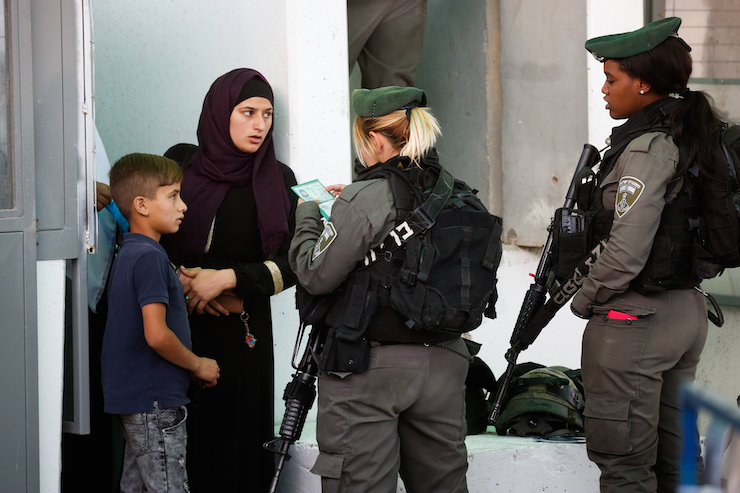The existing frameworks we have for addressing Israel’s rule over the Palestinians are flawed and becoming less relevant. Comparing it to other regimes that share one of its prominent characteristics, institutionalized discrimination, can create space for new ideas.
By Yariv Mohar

In the 51 years since Israel seized control of the West Bank and Gaza, Palestinians, Israelis, and the international community have come up with various frameworks for understanding and trying to resolve the situation. While the international community still prefers to think about Israel’s military control as a form of temporary occupation, more and more people have begun framing Israel, and particularly its rule over the West Bank, as a form of apartheid.
And yet, neither framework captures precisely the kind of regime that Israel has built over the past five decades. Rather than belligerent military occupation or apartheid, I propose viewing Israel’s rule in the West Bank as a “regime of discrimination.” A comparative study I conducted for Rabbis for Human Rights, which sought to rank discriminatory regimes globally, concluded that Israel’s rule over the West Bank is the third-most discriminatory regime in the world today.
The study (Hebrew) analyzes cases of institutional discrimination and aims at opening up a relatively new and potentially more effective understanding of the issue at hand. By comparing the situations in various regimes around the world, the study analyzes and compares the treatment of minorities in terms of: legal status, political opportunities, and suffrage (i.e. the right to vote and be elected or, in non-democratic regimes, the option of gaining senior positions in the political establishment), the right to freedom of movement and the freedom to live anywhere in the country, and the allocation of resources.
According to the criteria laid out in the study, Israel’s rule in the West Bank came in behind Lebanon’s treatment of Palestinian refugees and Myanmar’s treatment of its Rohingya minority. Along the same criteria, Israel’s regime in the West Bank was ranked as more discriminatory than Morocco’s treatment of the Sahrawis in Western Sahara, Russia’s treatment of the Chechnyans and Crimean Tatars, Pakistan’s treatment of Pashtuns, China’s treatment of Tibetans, Turkey’s treatment of the Kurds, and India’s treatment of the Kashmiris.
It is important to note that the study did not deal with levels of oppression (which, in cases like Myanmar, is far more severe than in the West Bank) or violence. It sought to create a framework that looked exclusively at regimes that institutionalize discrimination.
A flawed discourse
Beyond ranking, these findings provide us with a new framework to think about Israel’s regime in the West Bank, especially as existing paradigms become less relevant. The classic framework used among international institutions vis-à-vis the occupied territories is based on the legal and conceptual framework of a military occupation amid security concerns and territorial disputes. This type of framework is used when describing various similar cases around the world, including West Sahara or Kashmir. What usually results from this framing is a single solution to the Israeli-Palestinian conflict: Israeli withdrawal from the West Bank following a political agreement.
Such framing legitimates the endless and fruitless cycles of “peace negotiations,” which give the occupation a “temporary” veneer. And yet the occupation endures, lasting a lifetime for many Palestinians. In a sense, the occupation framework creates the conditions for its own persistence.
In the past few years, we have seen the “apartheid” analogy, which seemingly prescribes sanctions on Israel, similar to South Africa’s apartheid regime, gain momentum internationally. Yet the apartheid discourse remains on the political margins, partly because Israel’s regime is in so many ways different than the South African case.
In contrast, framing Israeli rule as a regime of discrimination means it is not bound to one specific historical example and its particularities. Instead, it allows us to view the regime in the West Bank as a general state of affairs, making it harder to dismiss and easier to utilize in comparative studies.
Thus, I propose understanding Israel’s rule over the West Bank as a “regime of discrimination.” As this study suggests, doing so will help us expose just how unexceptional yet severe Israel’s rule over the West Bank truly is. And perhaps, viewing it through a different framework could lead to innovative ways of resolving it.
Yariv Mohar is the head of the media and research department in Rabbis for Human Rights and a PhD student in sociology at Ben Gurion University.
